Subscribe to this podcast via your favourite app
Join my newsletter for more awesome information about ASD
Join the facebook group specifically for this podcast – https://www.facebook.com/groups/suelarkeypodcastcommunity/
Navigate puberty discussions neurodivergent children.

Navigate puberty discussions neurodivergent children.
✅ What age should you have conversations about puberty and sex?
✅ How to have open, honest and ongoing conversations about puberty
✅ Teaching children about changes in the opposite sex
✅ Keeping children safe online
✅ Hygiene is an important part too
✅ Talking to children about our bodies
✅ Top resources for talking about puberty and sex
Puberty is part of natural development for all children. Puberty usually starts in girls around 10-11 and boys 11-12. Menstruation for girls typically occurs between 12 and 13, while voice changes for boys is often around 15. We ALL need to have on-going discussions with the child and this is where having both home and school helping the child’s understanding is vital. Boys and girls need to know about their changes and changes in the opposite sex too (particularly, if they have opposite sex siblings or are at co-ed schools). It is important to start sharing this information with them before the changes occur otherwise the children may worry that something is wrong with them. I know some parents who talk about the changes before they happen and then as they happen their children tell them and they celebrate!
Open, honest and on-going information is most effective, and not too much information all at once! That being said some children want to know everything and that is where books can be wonderful.
Links to other Related Resouces

Conversations about puberty.
As part of puberty it is vital to talk about Public, Private and Protective Behaviour.
You will also need to discuss home and school behaviour and social skills. Some students will unknowingly exhibit embarrassing behaviours or share information or ask questions that are inappropriate – like asking a girl if she has her period, or a boy if he has pubic hair. I think all of us have seen those embarrassing moments and the key is to let them know when, where, who, etc – but also if they make a social mistake how to fit it up!
Ensure you let people with autism know the boundaries between illegal and legal websites.
A number of people with autism have got in trouble with the Police for looking at inappropriate websites so it is VITAL we educate and let them know what is appropriate. This is where the books are so much better as you can control access to information and read together!
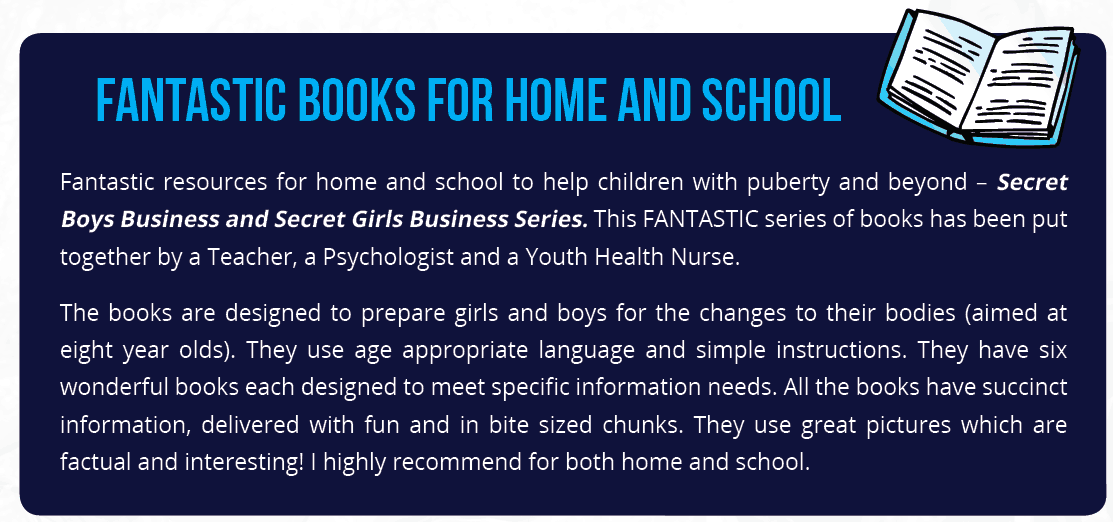
Other Great Information
Contact your Local Family Planning. They have great resources and courses for kids with additional needs!
GREAT RESOURCES FOR PUBERTY EDUCATION
SECRET BOYS’ BUSINESS AND SECRET GIRLS’ BUSINESS SERIES
As sex education is an important aspect of a child’s development, the authors have written and published a series of puberty books to prepare and support boys and girls for puberty. For children with special needs, including intellectual disability, physical disability, communication disorder and autism, there is a series of disability puberty books. The books are easy to understand, provide practical information and have attractive illustrations to help girls and boys manage this stage of their life with confidence. Schools will find all of these puberty education books a valuable resources.
-

Making Sense of Sex
$48.95 -

Secret Boys’ Business
$17.95 -

Secret Girls’ Business
$15.95 -

More Secret Girls’ Business
$17.95 -

Special Girls’ Business
$45.95 -

Special Boys’ Business
$45.95 -
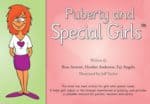
Puberty and Special Girls
$45.95 -

The Secret Business of Relationships, Love and Sex
$20.95 -

The Asperger Teen’s Toolkit
$45.95 -

Growing Up Book for Boys: What Boys on the Autism Spectrum Need to Know
$37.95 -
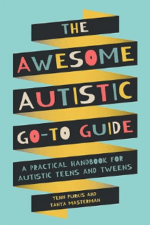
Awesome Autistic Go-To Guide: A Practical Handbook for Autistic Teens and Tweens
$42.95
“Remember it is all about navigating puberty discussions neurodivergent children, having conversations about puberty, and keeping children safe online.
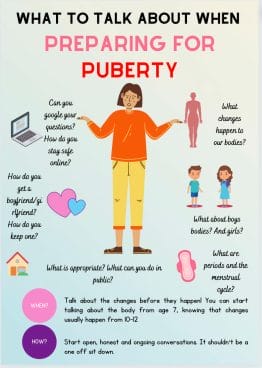

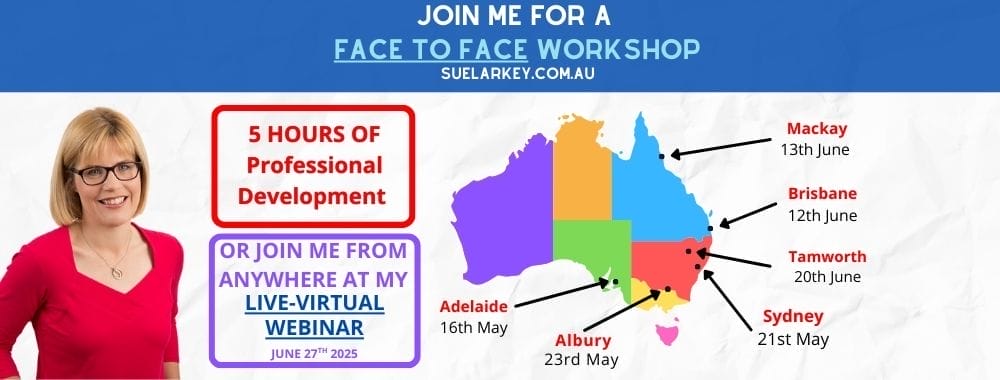


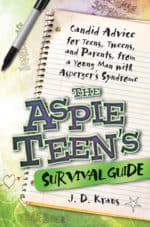
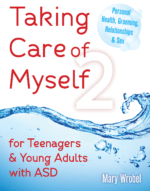
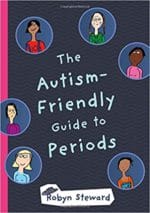


 Sorry we no longer ship items outside Australia. Please consider the digital versions of Sue’s Books –
Sorry we no longer ship items outside Australia. Please consider the digital versions of Sue’s Books – 